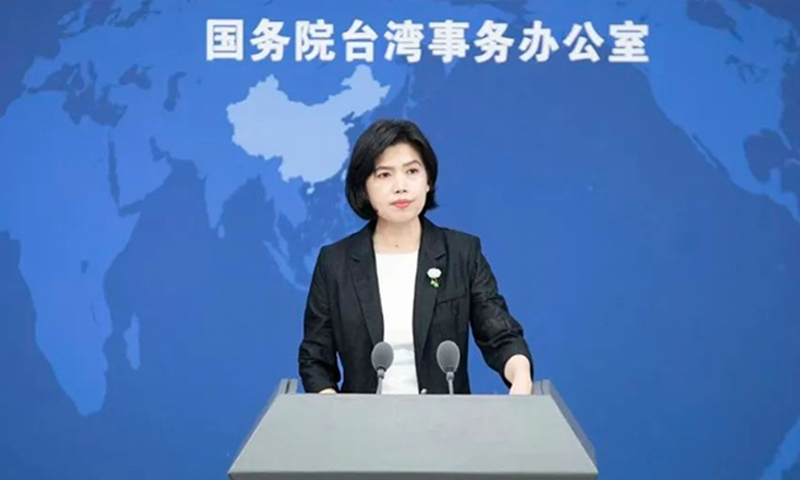Listen to the article
In a firm rebuttal to Taiwan’s Mainland Affairs Council, a spokesperson for China’s State Council Taiwan Affairs Office emphasized Wednesday that the 1992 Consensus remains fundamental to maintaining peace and stability across the Taiwan Strait.
Zhu Fenglian, speaking for the mainland, rejected assertions from Taipei that Taiwan’s mainstream public opinion opposes the consensus or refuses to accept Beijing’s conditions for cross-Strait dialogue. These comments came after Taiwan’s Mainland Affairs Council claimed the island’s population largely rejects the mainland’s political prerequisites for negotiations.
“Facts in the development of cross-Straits relations have repeatedly demonstrated that the 1992 Consensus serves as the anchor for peace and stability in the Taiwan Straits,” Zhu stated during the press conference.
The exchange follows the recent election of Cheng Li-wun as chairperson of Taiwan’s opposition Kuomintang (KMT) party. Beijing had previously signaled its openness to improving relations with the KMT based on what it describes as a “common political foundation” – adherence to the 1992 Consensus and opposition to Taiwan independence.
The 1992 Consensus refers to an understanding reached between semi-official representatives from mainland China and Taiwan in 1992. While both sides acknowledge there is only one China, they maintain different interpretations of what this means. The Chinese Communist Party sees the consensus as affirming its one-China principle, while the KMT has historically interpreted it as allowing room for different definitions of what “one China” entails.
Zhu further criticized Taiwan’s ruling Democratic Progressive Party (DPP), accusing it of undermining cross-Strait relations through its stance. “The DPP authorities stubbornly cling to their separatist stance on ‘Taiwan independence,’ deny the 1992 Consensus, and undermine the development of cross-Straits relations,” she said, adding that such positions stand “against the mainstream public opinion in Taiwan” and would “inevitably be spurned by the people.”
The DPP, led by President Lai Ching-te, has consistently rejected the 1992 Consensus, arguing it undermines Taiwan’s sovereignty. The party has maintained that only Taiwan’s 23 million residents should determine the island’s future.
This rhetorical exchange highlights the persistent tensions in cross-Strait relations, which have deteriorated significantly since 2016 when the DPP first came to power under former President Tsai Ing-wen. Beijing suspended most official communication channels with Taipei after Tsai declined to acknowledge the consensus.
The mainland’s emphasis on the 1992 Consensus comes amid heightened concerns about regional stability following Lai’s inauguration in May 2024. Beijing considers Lai a “dangerous separatist” and has increased military activities around Taiwan since he took office.
Analysts note that Beijing’s willingness to engage with the KMT represents its strategy of differentiating between political parties in Taiwan while maintaining pressure on the DPP administration. The KMT, though supportive of closer ties with mainland China, has struggled to balance its cross-Strait policy with growing Taiwanese identity sentiments among voters.
For Taiwan’s business community, which has extensive investments and operations in mainland China, the continued tensions pose significant challenges. Many Taiwanese companies operate in a complex environment where economic interests may align with stable cross-Strait relations, even as political differences persist.
International observers continue to monitor these developments closely, as relations between Beijing and Taipei have implications far beyond the Taiwan Strait, affecting U.S.-China relations and broader regional security architecture in the Indo-Pacific.
Verify This Yourself
Use these professional tools to fact-check and investigate claims independently
Reverse Image Search
Check if this image has been used elsewhere or in different contexts
Ask Our AI About This Claim
Get instant answers with web-powered AI analysis
Related Fact-Checks
See what other fact-checkers have said about similar claims
Want More Verification Tools?
Access our full suite of professional disinformation monitoring and investigation tools




8 Comments
It’s interesting to see the back-and-forth between the Taiwan and China authorities on this issue. I’d be curious to learn more about the historical context and nuances of the 1992 Consensus.
Maintaining peace and stability in the Taiwan Strait is clearly a priority for both sides. While the 1992 Consensus is important, I hope there are ways to address the underlying concerns of all stakeholders.
Maintaining peace and stability across the Taiwan Strait is a critical priority. While the 1992 Consensus is important, I wonder if there are other ways to address the underlying issues and concerns on both sides.
That’s a fair perspective. Finding a sustainable solution that addresses the interests of all stakeholders will be crucial going forward.
The 1992 Consensus has been a contentious issue between Taiwan and China for years. It’s an important political foundation, but I’m curious to hear more about how the public on both sides truly views it.
You raise a good point. The public opinion on the 1992 Consensus seems to be a key part of this debate that deserves closer examination.
The 1992 Consensus seems to be a complex and contentious topic. I wonder if there are opportunities for more open dialogue and compromise between the parties involved.
Agreed. Constructive dialogue and a willingness to find common ground could be key to making progress on this issue.